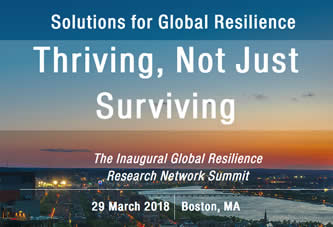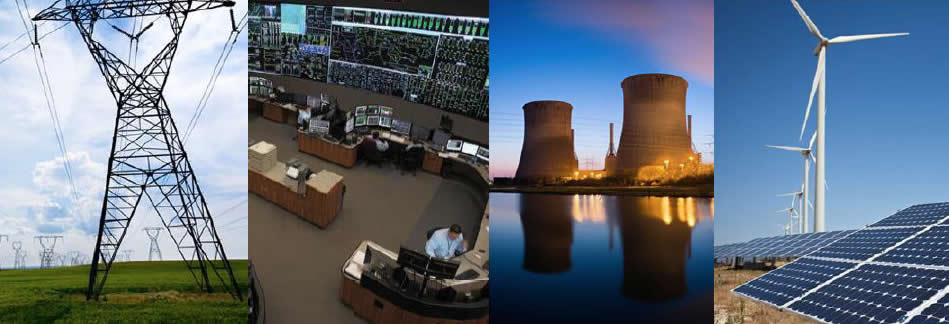Since launching the Resilience Engineering Institute (REI) in February 2018, REI members have been busy shaping perspectives on resilience across the US. REI members were invited to attend and speak at five events across military, private, and academic industries. These events span a breadth of topics from training the next generation of US soldier to manage crisis in urban areas to building an international research network to address natural disasters across the world. The breadth of topics shows the growing influence of resilience theory and practice in diverse industries and settings. Moreover, REI’s participation shaping these events shows that resilience engineering concepts provide important guidance for decision-making in an untold number of stressful situations, from planning a military attack to protecting a city from oncoming disaster. Highlights include:
 We led expert discussions on urban infrastructure systems and resilience at the Dense Urban Areas (DUA) curriculum workshop put on by the Arizona State University Research Enterprise at Arizona State University in Tempe, AZ (Mar 1). The goal of the workshop was to bring academic and military experts together to discuss the next generation of urban systems education that can serve students interested in international public policy. REI members both led discussions and integrated expert opinions on infrastructure with perspectives on urban sustainability, environment, population, and economy. Conclusions and recommendations drawn from this workshop will help establish a new program at Arizona State University on global Megacities.
We led expert discussions on urban infrastructure systems and resilience at the Dense Urban Areas (DUA) curriculum workshop put on by the Arizona State University Research Enterprise at Arizona State University in Tempe, AZ (Mar 1). The goal of the workshop was to bring academic and military experts together to discuss the next generation of urban systems education that can serve students interested in international public policy. REI members both led discussions and integrated expert opinions on infrastructure with perspectives on urban sustainability, environment, population, and economy. Conclusions and recommendations drawn from this workshop will help establish a new program at Arizona State University on global Megacities.
We participated in the Naval Innovation Process Adoption (NIPA) workshop at the Naval Postgraduate School in Monterey, CA to help launch new entrepreneurial efforts for research and development in the Office of Naval Research (ONR) (Mar 19-21). NIPA was led by innovation experts Steve Blank and Peter Newell of BMNT to identify the needs and barriers to innovation at ONR. As a participant, REI  members received training in the innovation process that will be adopted by ONR and helped shape some of the initial ideas and goals set forth within the organization.
members received training in the innovation process that will be adopted by ONR and helped shape some of the initial ideas and goals set forth within the organization.
We participated in the Human Performance on the Grid Conference put on by the North American Electric Reliability Corporation (NERC) in Atlanta, GA (Mar 27-28). At the conference, REI members learned the state-of-the-art for safety and resilience across the North American power grid and participating investor owned utilities. Members also participated in expert discussions with influential companies like ResilientGrid that are shaping the future of power system management and design.
 We led research discussions and helped guide the future plans for the Global Resilience Institute (GRI) at Northeastern University by participating as invited guests to the institute’s Global Resilience Research Network Summit in Boston, MA (Mar 28-29). The event included expert panels, facilitated evening discussions, and ideation for new research topics on resilience. REI members participated in the entire event, met experts from all 7 continents working on resilience research, and solidified connection to the GRI.
We led research discussions and helped guide the future plans for the Global Resilience Institute (GRI) at Northeastern University by participating as invited guests to the institute’s Global Resilience Research Network Summit in Boston, MA (Mar 28-29). The event included expert panels, facilitated evening discussions, and ideation for new research topics on resilience. REI members participated in the entire event, met experts from all 7 continents working on resilience research, and solidified connection to the GRI.
Finally, we led breakout groups and discussions at the Military Operations Research Society (MORS) workshop entitled, “Developing and Assessing Resilient Systems in Support of National Security Missions,” held at the US Army Engineer Research and Development Center Information Technology Laboratory in Vicksburg, MS (Apr 10-11). REI members held discussions with stakeholders from academia, private industry, NATO, and US defense communities on how to define the next generation of research and tools for critical infrastructure resilience.
Through these events REI is establishing a thought leadership position across industries and partners and building relationships to further the development of resilience engineering research and practice. This is only the beginning, though, and we plan to continue building momentum and engaging with experts within the US and across the globe!
